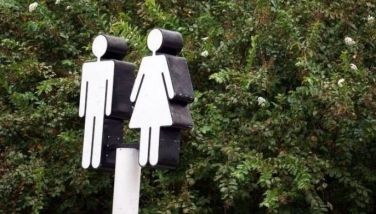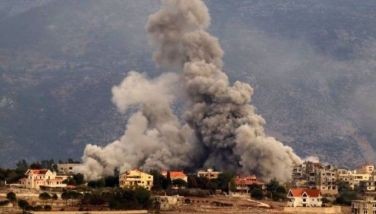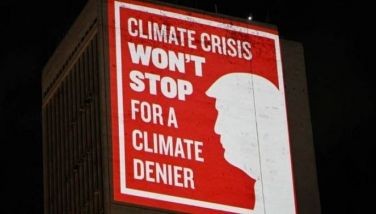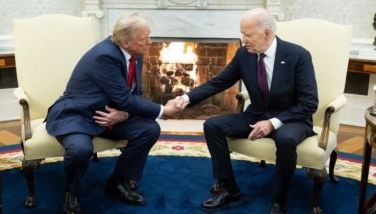Divided powers fail to exercise sway in Gaza conflict
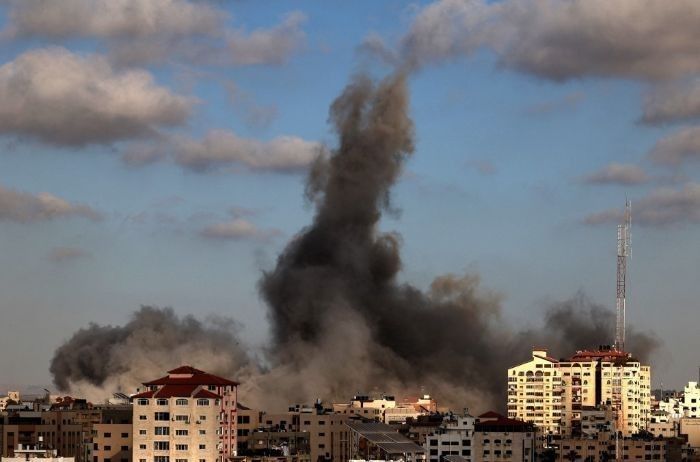
PARIS, France — With Europe divided and the United States wary of antagonising Israel, world powers have failed to rein in the Gaza conflict, in a new sign of the international community's inability to put any Middle East peace process on track, analysts say.
World powers are walking a diplomatic tightrope, trying to strike a sometimes excruciating balance between Israel and Palestinian militant group Hamas in the conflict that has raged for 10 days.
Condemnation of the stream of Hamas rockets on Israeli cities has only in the last few days been balanced by ceasefire calls directed at Israel, with Washington now urging de-escalation.
Here is a look at the different priorities for world powers.
Cautious Joe Biden
US President Joe Biden had in the early phase of his administration not made the Israeli-Palestinian issue a priority after the moves by Donald Trump in favour of Israel.
But whether he likes it or not, he now finds himself on the frontline of managing the crisis. Western partners and the Democratic Party left want him to pressure Israel, which would be a departure from traditional US policy towards its top regional ally.
"What is happening now shows that the idea promoted by some -- that simply by ignoring the Middle East conflict it will go away on its own -- is a fantasy," said French Foreign Minister Jean-Yves Le Drian.
"The traditional position of the United States is not to put pressure on Israel," said Pascal Boniface, director of the Institute for International and Strategic Relations in Paris.
For all the Biden administration's talk of re-engaging in multilateralism post-Trump, it is putting "bilateral channels" before the UN, where it has so far blocked any initiative calling for a ceasefire, a European diplomatic source said.
"At this stage, the Biden administration understands that there is little policy benefit to be gained by heavily investing US diplomatic resources in trying to solve the conflict, and that the first priority right now is a ceasefire," said Lucy Kurtzer-Ellenbogen, director of the Israeli-Palestinian Conflict Program at the US Institute of Peace.
Ghaith al-Omari, senior fellow at the Washington Institute, added that Israel and the United States wanted to ensure "that Hamas cannot credibly claim victory once the fighting stops".
Europe left on sidelines
The European Union has levers: it is Israel's number one economic partner and a key supporter in development for the Palestinians.
But it remains divided -- Hungary refused on Tuesday to join a joint declaration calling for a ceasefire -- and its voice is largely inaudible on this issue.
"Divisions have grown between member states due to the influence of the Trump administration, which greatly radicalised the issue," said Pierre Vimont, a former French diplomat and senior fellow at Carnegie Europe Centre told AFP.
"Member States are just as divided on using the levers," he added, lamenting "a total lack of initiative" from the bloc.
The EU also refuses to put pressure on Israel by using the 2000 association agreement on trade between the bloc and the Jewish state. It has no contact with Hamas which it considers a terrorist organisation.
Of EU members, it is France that has taken the most visible steps, with President Emmanuel Macron holding trilateral summit talks with Egypt's president and Jordan's king on Tuesday.
They "called on the parties to immediately agree on a ceasefire," the Elysee said after the meeting, adding that they "also decided to work with international partners to reach such a ceasefire including through the UN Security Council".
Proposing a resolution at the UNSC would be seen as a challenge to the United States, whose use of a veto would call into question Biden's intentions to be a more multilateral president.
German Chancellor Angela Merkel, meanwhile, said that "indirect talks" with Hamas were essential to obtain a ceasefire.
Egypt, still mediator number one
The conflict has shown that under President Abdel Fattah al-Sisi Egypt has retained its role as the number one mediator, a status it long enjoyed under deposed strongman Hosni Mubarak.
Middle East analyst Haisam Hassanein said Cairo was not in a position to find a long-term solution to the conflict but was being turned to as the power to bring about some respite quickly.
"Cairo's role has been reduced to mediating short-term ceasefires when escalation gets out of control. Yet Egyptian officials should be encouraged by the fact that Israel has insisted on keeping them in the loop," he said.
Iran, Turkey: defenders of Palestinians
President Recep Tayyip Erdogan of Turkey, whose country has had tense relations with Israel in the last years, has presented himself as the champion of the Palestinians as Arab states who recently normalised ties with Israel, like the UAE, stayed largely silent.
Washington accused Erdogan of anti-Semitism for his tirades against Israel and, while this was bitterly denied by Ankara, such rhetoric means Turkey can play no role as a mediator.
Iran meanwhile is seen as Hamas' main backer and is accused of supplying both arms and finance.
The Soufan Center said in a research note that as in recent history, "Iranian leaders are taking advantage of a conflict that they did not themselves start."
It said the conflict "serves Iran's interests" by enhancing Hamas' role in the Palestinian movement and Iran's leverage in "a shadow war" with Israel.
Russia sits out
Russia had cordial relations with both Israel and Palestinian leaders, many of whom were partly educated in Moscow during the USSR.
But it has not deployed its leverage, instead calling for a meeting of the Quartet, a largely moribund format on the Middle East comprising Russia, the United States, UN and EU.
- Latest
- Trending



















